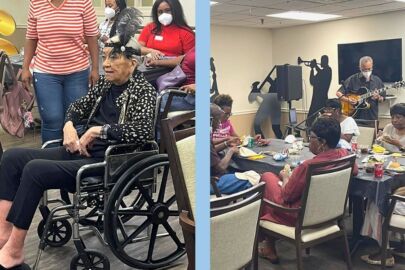When Does One Need Long-Term Care?
As we get older everyday daily tasks that were easy during our youth can become increasingly difficult. Taking care of ourselves and tending to our activities of daily living (ADLs) can become a challenge. Assistance with bathing, dressing, grooming, eating, mobility and toileting may be required as we may become less independent with age. Long-term care provides the ability to live safely using support services when one is unable to care for themselves on their own.
In most cases, long-term care is needed after a serious health condition like a heart attack or stroke. In other cases, a caregiver may need to help a patient recover from an operation or accident. As a person ages, they may experience issues with movement or suffer from a chronic illness. Long-term care spans a wide range of services for both health-related and non-health-related issues and can be performed in a variety of settings including one’s home or within a specialized facility.
Who Benefits from Long-Term Care?
Every individual’s needs are different. When it comes to long-term care there are certain factors that influence the likelihood of needing assistance. They include:
- Age: Older adults need more assistance with ADLs
- Gender: Women are more likely to need care because of a longer lifespan
- Health History: Chronic health conditions like diabetes or high blood pressure usually run in families. Individuals with a genetic disposition are more vulnerable.
- Lifestyle: Lack of exercise, an unhealthy diet, and other bad habits increase the likelihood of needing long-term care.
- Living Alone: Someone without family members or friends nearby may require long-term care.
The Right Long-Term Care Setting Just for You
Beaumont Health Care Center offers “Care for Every Situation.” Every resident receives customized care tailored just for them. Our warm, personalized approach is designed to offer unique care while respecting personal preferences. Whether it’s skilled nursing, therapy, or personal services, each program addresses the specific goals of each resident. It’s important to learn about the different options available so that you can choose the best one for your loved one.
Hospice Care
At Beaumont Health Care Center our goal is to provide your loved one with the best quality of life during their remaining days. Our goal is to provide the highest level of compassionate care each day so that you can enjoy every moment with your loved one. You simply choose the facility of your choice, and we’ll coordinate the transition to hospice care.
Respite Care
Sometimes you may need a break when taking care of your loved one. Beaumont Health Care Center provides the respite you need by providing planned or emergency care for individuals in need. Respite care includes helping with day-to-day activities and basic needs.
Specialized Skilled Nursing
Every resident is a part of the Beaumont Health Care Center family. You may rest assured that your loved one will receive daily care with healing and compassion in mind. We offer both long-term care and post-surgery nursing care.
Rehabilitation
Beaumont Health Care Center employs an interdisciplinary team of physicians, skilled nurses, and physical, occupational, and speech therapists. Each care plan aims to achieve optimal recovery from injury, illness, or surgery. Our transitional care unit is available 24/7 to optimize and expedite healing.
Planning for Long-Term Care
Preparing ahead for long-term care can be a lifesaver. We never know when our loved one might need it. Having a plan before accidents, illnesses or injuries happen is a wise course of action. With time to explore your options, you can learn which services are available in your community and understand their cost. If you have a loved one with a cognitive impairment like Alzheimer’s disease or dementia, planning for long-term care should begin as early as possible.
Long-Term Care Financing Options
Billions of dollars are spent every year in the United States on long-term care. The high cost can be intimidating but there are options depending on your financial situation. Examples to consider include:
- Selling your home
- Reverse mortgages
- Veteran’s benefits
- Assets and personal savings funds
- Income from stocks
- Government-funded health insurance programs like Medicaid
- Long-term care insurance
- Services through the Older Americans Act
Have Questions About Long-Term Care?
Please call us at 409-842-2228 and we would be happy to answer any questions you may have.



